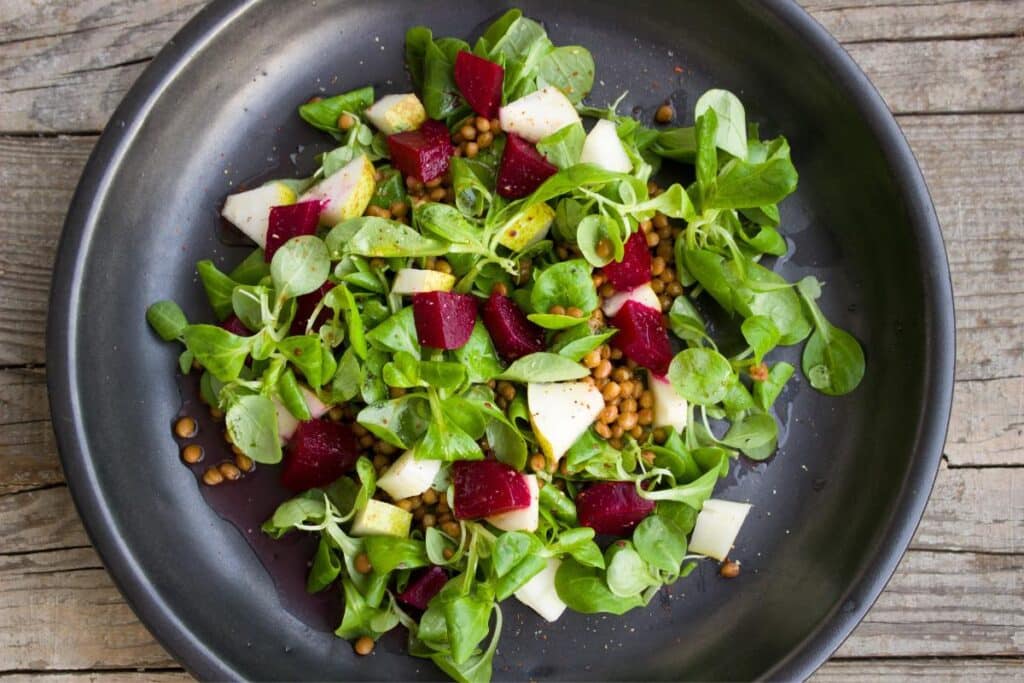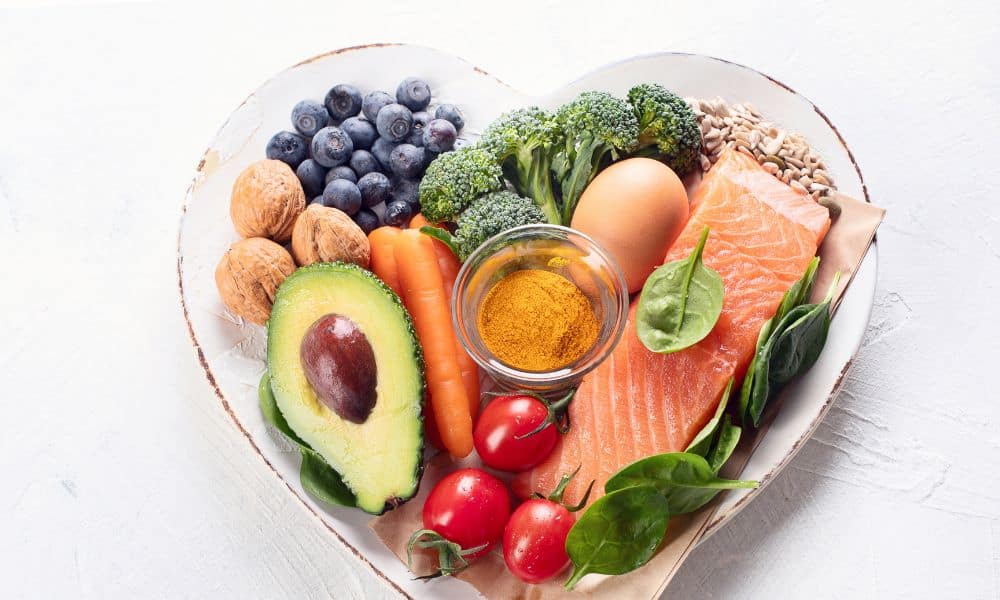Losing weight is one of the most difficult and tedious tasks for many people. A successful weight loss diet plan is essential for achieving your desired weight loss goals. However, it is important to understand the do’s and don’ts of a weight loss diet plan.
This article provides a comprehensive overview of what you should never ignore when it comes to a successful weight loss diet plan. It outlines the steps you should take to ensure you are following a healthy and balanced diet that will help you reach your weight loss goals. With this comprehensive guide, you will be able to better understand the importance of following a weight loss diet plan and how to stick to it.
What are the Do’s and Don’ts of a Successful Weight Loss Diet Plan?
When it comes to a successful weight loss diet plan, there are a number of do’s and don’ts you should adhere to. Do not rely on fad diets or crash diets that promise quick results. These types of diets are not only unhealthy, but they can also have long-term effects on your health.
In addition to having adverse effects on your health, these diets are also unsustainable. This means that once you stop following them, you will quickly regain the weight you lost. A successful weight loss diet plan is a long-term commitment. There are many professional weight loss clinics to help you lose weight in a healthy manner. You should not expect to lose weight overnight. It takes time and requires effort from both you and your dietician. In order to ensure that your diet plan is successful, you should consider the following do’s and don’ts:
Tips to Help You Stick to a Weight Loss Diet Plan
With so many different diet plans around, it can be difficult to know which one is right for you. If you are struggling to find the right diet plan to follow, try the following tips to help you stick to a weight loss diet plan:
- First, you should identify your health goals. Why do you want to lose weight? What are your short-term and long-term goals? Once you know why you want to lose weight, you will be able to identify the right diet plan for you. There are many different diet plans that you can follow. Choosing the right diet plan is essential to achieving your goals.
- Next, you should find a diet plan that is sustainable for you. Many people choose to follow crash or fad diets in the hopes that they will lose a significant amount of weight quickly. However, these diets are not sustainable and are unlikely to lead to long-term weight loss. You should find a diet plan that is realistic and sustainable for you.
- You should also find a diet plan that is easy to follow. You will not succeed if you are spending hours every day prepping your meals and tracking the calories you are consuming and taking multivitamins. Find a diet plan that is convenient and easy to follow.
The Importance of Eating Healthy and Nutritious Foods
When following a weight loss diet plan, you should try to consume as many healthy and nutritious foods as possible. This is essential for providing your body with the energy and nutrients it needs to function properly. Healthy and nutritious foods include vegetables, fruits, legumes, seeds, tofu, nuts, and whole grains.
These foods are high in vitamins and minerals while being low in calories. While you need to consume healthy and nutritious foods when following a weight loss diet plan, you also need to track the amount of calories you are consuming. This is important for monitoring the amount of energy your body has and therefore ensures your body has the energy it needs to function properly.
If you fail to track your calorie intake, your diet will not be as effective and you could experience adverse side effects. Make sure that you are consuming healthy and nutritious foods when following a weight loss diet plan.
The Benefits of Eating Regularly and Eating Smaller Portions
When following a weight loss diet plan, you should try to eat regular meals and smaller portions. Regular meals will ensure that you do not experience any energy slumps during the day. Eating regular meals will also help to regulate your metabolism. Regular meals will also help you avoid overeating and help you to feel full for longer.
When following a weight loss diet plan, you should try to eat smaller portions. This is important for regulating your portion sizes and avoiding overeating. By eating smaller portions, you will likely feel more satisfied and avoid overeating.
Foods to Avoid When Following a Weight Loss Diet Plan
Many people make the mistake of thinking that they should cut out all the foods they enjoy eating when following a weight loss diet plan. This is unnecessary and can be extremely difficult to sustain. Instead of cutting out all the foods you enjoy eating, try to avoid eating high-calorie foods or certain foods that are high in fat or sugar.
Some foods to avoid when following a weight loss diet plan include:
- Sugary foods – These are high in sugar and can cause your blood sugar levels to spike. Eat regular amounts of sugary foods and your blood sugar levels will be unstable and your energy levels will be low.
- High-fat foods – These are also high in calories and will likely cause you to gain weight. Additionally, they can raise your cholesterol levels and increase your risk of developing heart disease.
- High-sodium foods – These can cause you to retain water and cause you to feel bloated. They can also increase your risk of developing kidney disease.
Exercising and Staying Active
Exercising and staying active are essential for both general health and for weight loss. When following a weight loss diet plan, you should try to incorporate exercise into your daily routine. Regular exercise will help you to burn excess calories, lose weight, and improve your mental and physical health.
There are many different types of exercise you can try. Some examples include yoga, running, swimming, hiking and cycling. Make sure that you are working at a level that is challenging for you. You should also aim to work out for at least 30 minutes at a time. If you are new to exercise, you should start off slow and work your way up to a more challenging level over time.
The Benefits of Drinking Plenty of Water
When following a weight loss diet plan, you should try to drink plenty of water. This is important for both your mental and physical health. Drinking water regularly will help to improve your metabolism. It will also help to regulate your digestion and can help to prevent bloating and constipation.
Additionally, it will also help to regulate your blood pressure and can help to reduce your risk of developing certain types of cancers. When following a weight loss diet plan, you should try to drink 2 liters of water per day. You should aim to drink 2 liters of water per day at regular intervals throughout the day.
Supplements and Vitamins to Incorporate in Your Diet
While you should focus on consuming healthy and nutritious foods, you should also consider taking supplements and vitamins. This is important for providing your body with the nutrients it needs to function properly. Certain supplements and vitamins are essential for both mental and physical health.
Some examples include vitamin D, fish oil, and multivitamins. You should consult with your doctor before taking any supplements or vitamins. Your doctor will be able to recommend the right supplements and vitamins for your individual diet plan.
Do’s of a Weight Loss Diet Plan
First and foremost, do set realistic goals for your weight loss diet plan. While it is important to set goals for yourself, it is equally important to understand that not all goals are achievable in the short-term. When setting goals, it is essential to make sure that you keep your expectations realistic.
Ideally, your goals should be specific, measurable, attainable, and realistic. Once you have set your goals, you can start working towards them by creating a diet plan that aligns with your goals. A good weight loss diet plan should be sustainable and easy to follow.
You should be able to easily incorporate your diet plan into your daily routine without feeling overwhelmed or stressed. Your diet plan should contain foods that are healthy, nutritious, and easy to incorporate into your daily routine. Don’t ignore the importance of monitoring your nutrient intake when following a weight loss diet plan. You should closely monitor how many calories, macronutrients, and micronutrients you are consuming on a daily basis.
This can help you better understand how different foods can affect your weight loss goals. It is also important to monitor your water intake. Many people fail to understand the importance of water in the weight loss process.
Additionally, make sure to monitor your fiber intake. Fiber plays an important role in helping you feel full and satisfied throughout the day. It is also essential to regularly consume healthy and wholesome foods when following a weight loss diet plan. This will help you meet your daily nutritional needs while also reducing your risk of various diseases.
a. Set Realistic Goals
As mentioned above, when setting realistic goals for your weight loss diet plan, it is essential to understand that not all goals are achievable in the short-term. When setting goals, it is important to make sure that you keep your expectations realistic. Ideally, your goals should be specific, measurable, attainable, and realistic.
Once you have set your goals, you can start working towards them by creating a diet plan that aligns with your goals. A good weight loss diet plan should be sustainable and easy to follow. You should be able to easily incorporate your diet plan into your daily routine without feeling overwhelmed or stressed.
Your diet plan should contain foods that are healthy, nutritious, and easy to incorporate into your daily routine. Your diet plan should help you eat a balanced diet with all of the essential nutrients that your body needs. Ideally, your diet plan should also help you reduce your caloric intake to help you lose weight.
b. Monitor Nutrient Intake
It is also important to monitor your nutrient intake when following a weight loss diet plan. You should closely monitor how many calories, macronutrients, and micronutrients you are consuming on a daily basis. This can help you better understand how different foods can affect your weight loss goals. The first step towards monitoring your caloric intake is tracking what you are eating.
You can use an online tracker to log your daily meals and food intake. This will help you better understand your caloric intake and help you stick to your diet plan. Once you have a better understanding of your caloric intake, you can use this information to help you meet your daily caloric needs and help you achieve your weight loss goals.
Ideally, your diet plan should also help you reduce your caloric intake to help you lose weight. This will help you meet your daily nutritional needs while also achieving your weight loss goals.
c. Eat Whole Foods
Another important do of a weight loss diet plan is to eat whole foods. Whole foods are minimally processed foods that contain little to no chemicals and additives. They are often naturally rich in nutrients and contain little to no calories.
When following a weight loss diet plan, it is important to eat whole foods to boost your metabolism, reduce your calorie intake, and meet your daily nutritional needs. Eating a diet rich in whole foods will help improve your overall health, strengthen your immune system, and reduce your risk of contracting various diseases.
It will also help you feel fuller and more satisfied throughout the day. This will help you avoid eating calorie-rich snacks throughout the day and will help you stay on track with your weight loss goals.
d. Eat Enough Protein
Another important do of a weight loss diet plan is to eat enough protein. Protein is essential for building muscle, repairing tissues, and maintaining a healthy metabolism. It also helps you feel full and satisfied throughout the day. As part of a weight loss diet plan, it is important to incorporate protein-rich foods into your diet to help you stay full and avoid overeating.
Protein-rich foods include fish, beans, eggs, dairy products, and meat. Eating a diet rich in protein will also help you maintain a healthy weight, improve your muscle strength, and reduce your risk of contracting various diseases. It is important to remember that eating too much protein can be harmful for your health.
e. Get Enough Sleep
Finally, it is important to get enough sleep when following a weight loss diet plan. Many people overlook the importance of sleeping enough hours. Getting enough sleep will help you reduce your caloric intake, improve your metabolism, and help you achieve your daily nutritional needs.
It will also help you feel more energized and less stressed throughout the day. Getting enough sleep will help you stay on track with your diet plan and help you achieve your weight loss goals.
Don’ts of a Weight Loss Diet Plan
First and foremost, don’t ignore your cravings when following a weight loss diet plan. Many people try to ignore their cravings and end up binging on unhealthy foods. While it is important to avoid unhealthy snacks, it is equally important to listen to your body and understand what it needs.
If you are craving something, it may be because your body needs a specific nutrient. It may not be a sign that you need to binge on unhealthy foods. Instead, it may be a sign that you need to add more of that specific nutrient into your diet plan. It is important to understand that everyone’s diet needs vary. What works well for one person may not work well for another.
It is important to understand your diet needs and incorporate foods into your diet plan that will help you stay healthy and achieve your weight loss goals. It is important to avoid over-restricting calories when following a weight loss diet plan. Many people make the mistake of severely restricting their caloric intake in an effort to lose weight quickly.
This can have adverse effects on your overall health and can end up harming you instead of helping you. It is important to remember that it takes time to lose weight. You should aim to lose between one to two pounds per week. If you aim to lose weight too quickly, it can put your health at risk. It will also make you feel stressed out and overwhelmed. This can cause you to lose motivation and end up quitting before reaching your weight loss goals.
a. Don’t Skip Meals
Don’t skip meals when following a weight loss diet plan. Skipping meals can negatively affect your metabolism and harm your health. It can also make you feel more stressed out and less energized throughout the day. It is important to have three to five meals throughout the day. Ideally, each meal should contain a combination of healthy fats, proteins, and carbohydrates.
This will help you stay full, boost your metabolism, and meet your daily nutritional needs. Make sure to eat breakfast, as this is the most important meal of the day. Skipping breakfast can negatively affect your metabolism and can cause you to overeat later in the day.
b. Don’t Over-Restrict Calories
Don’t over-restrict calories when following a weight loss diet plan. This can cause your metabolism to slow down, which can harm your health. It can also make you feel tired, stressed out and less energized throughout the day. When following a weight loss diet plan, it is important to eat between 1200 to 2000 calories per day
Conclusion
Losing weight is both challenging and difficult. It is important to understand the do’s and don’ts of a successful weight loss diet plan to help you achieve your desired weight loss goals. A healthy and nutritious diet with plenty of exercise and activity will help you to achieve your goals. With this guide, you will be able to understand the importance of a healthy and nutritious diet and how to incorporate it into your diet plan.




